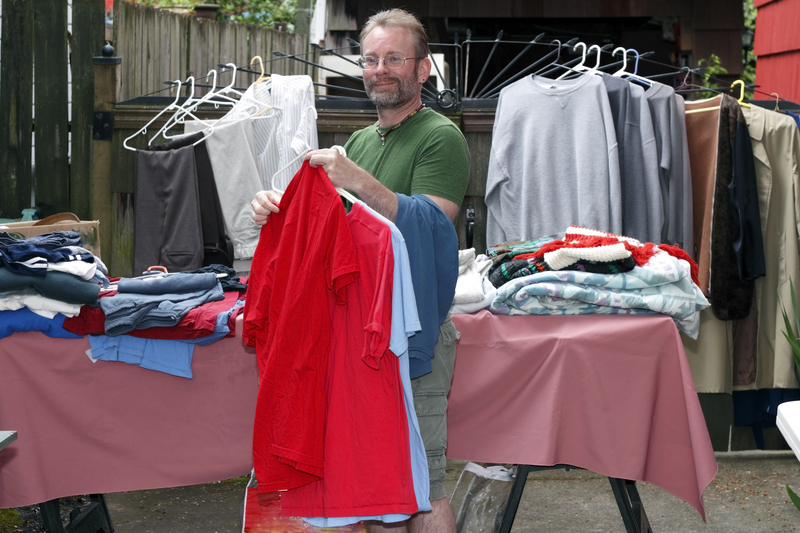Rubbish Removal Bags Versus Skips - Which Is Right for Your Waste Disposal Needs
When embarking on a cleaning, renovation, or landscaping project, efficient waste disposal is crucial for maintaining a tidy environment and ensuring compliance with local regulations. Two of the most popular solutions for handling excess waste are rubbish removal bags and skips. Both options have their own unique benefits, limitations, and costs, making it important to understand the nuances before choosing the best option for your needs. In this comprehensive guide, we'll break down the pros, cons, and ideal scenarios for using skip bins and rubbish bags, helping you make an informed decision for your next project.
What Are Rubbish Removal Bags?
Rubbish removal bags--also known as skip bags, junk bags, or waste removal bags--are heavy-duty, flexible woven polypropylene bags designed to hold various types of waste. They're typically purchased flat-packed, filled by the user, and then collected by a waste removal company upon request.
Main Features of Rubbish Removal Bags
- Lightweight and Portable: Easy to store, move, and set up anywhere on your property.
- Variety of Sizes: Available in small to extra-large options (usually from 1 to 4 cubic yards).
- Order-On-Demand Service: Collection is arranged when you need it, avoiding rental complications.
- Environmental Responsibility: Many services recycle collected waste and aim for sustainability.

What Are Skips?
Skip bins, or skips, are large, rectangular, and rigid metal containers delivered to your property, into which you load your waste. Once full or at the end of the hire period, the company collects the skip and disposes of the contents appropriately.
Main Features of Skips
- Sturdy Construction: Ideal for heavy materials like bricks, concrete, and soil.
- Range of Sizes: Small mini-skips (2-3 cubic yards), mid-size (6-8 yards), to large builders' skips (up to 14-16 yards or more).
- On-Site Convenience: Provides a static unit for ongoing cleanups over multiple days or weeks.
- Efficient for Bulk Waste: Best for large-scale projects generating a significant amount of debris.
Comparing Rubbish Removal Bags and Skips
Deciding between rubbish removal bags and skips depends on several key factors, including: the type and quantity of waste, available space, budget, and duration of use. Below, we explore these critical aspects to help you identify the best waste removal solution for your individual needs.
1. Types of Waste Accepted
-
Rubbish Removal Bags:
- Suitable for: general household waste, garden waste, light renovation debris, old furniture, and appliances (check with the bag provider for specifics).
- Limitations: Not always suitable for heavy construction debris like soil, rubble, or large metal items.
-
Skips:
- Suitable for: mixed construction waste, hardcore, soil, bricks, general rubbish, and bulky items.
- Limitations: Some restricted items (asbestos, electricals, chemicals) require specialist disposal.
2. Capacity and Size Options
Rubbish bags are available in size ranges typically up to 4 cubic yards, holding around 1-1.5 tonnes of waste. Skips far exceed this, with large builder's skips capable of holding 8+ tonnes and larger volumes of material. For minor clear-outs, a rubbish bag might suffice. Large refurbishments, construction projects, or garden redesigns will often require a robust skip to manage waste volume.
3. Flexibility and Accessibility
-
Rubbish Removal Bags:
- Very flexible: can be set up almost anywhere, even in hard-to-access spots such as behind fences or on lawns.
- Perfect for limited space properties or tight driveways.
-
Skips:
- Require sufficient space for placement and for collection truck access.
- May need a council permit if placed on public land, verges, or roads.
4. Permit Requirements and Legal Considerations
- Skips: If a skip is placed on a public road or pavement, local councils usually require a permit, which adds cost and potential delay.
- Rubbish Bags: As they are portable and often kept on private land, permits are rarely required.
Tip: Always check with your local authority for specific restrictions relating to your waste disposal choice.
5. Cost-Effectiveness
- Rubbish Bags: Generally cheaper for small to medium amounts of waste. You pay for the bag and collection, often less expensive than a skip (especially when you factor in permit fees).
- Skips: Better value for money on large, heavy loads, but costs include delivery, collection, and potential permits. Extra charges may apply for extending hire periods.
6. Environmental Impact
- Both skips and rubbish bags providers often aim to recycle a majority of collected waste, with some boasting recycling rates above 90%. The chosen provider's environmental policy is key if sustainability is a concern.
7. Duration of Hire
- Skips: Typically hired for a set period (commonly 7-14 days). Extensions may incur extra fees.
- Rubbish Bags: Fill the bag at your own pace. Schedule collection when ready, thus offering more time flexibility.
Rubbish Bags vs. Skips: Pros and Cons
Advantages of Rubbish Removal Bags
- Easy storage and portability prior to use
- No need for council permits on private land
- Quick delivery and flexible collection arrangements
- Suitable for light to moderate waste loads
- Ideal for tight spaces or properties with limited access
- Lower cost for smaller projects
Limitations of Rubbish Removal Bags
- Maximum weight and volume restrictions (check supplier guidance)
- Not suitable for heavy construction or dense fill waste
- Potential extra charges if contents are overweight or contain restricted items
- Some collection trucks require front access for crane lift
Advantages of Skips
- Robust and ideal for heavy, bulky, and mixed demolition waste
- Wide range of sizes for all project scales
- Less risk of overloading if you select the correct size
- Can be loaded over several days on-site
Limitations of Skips
- Require sufficient space and clear access for placement and pick-up
- Council permits may be necessary for on-road placement
- Usually more expensive than rubbish bags for small-scale jobs
- Fixed hire period can incur surcharges if extended
- May damage lawns or block driveways during use
Which Option is Best for Different Scenarios?
Choose Rubbish Removal Bags if:
- You have a small to medium house, garage, or garden clear-out
- Property has restricted access or limited space
- You need flexibility to fill your waste container over a longer period
- Your waste consists of lighter materials, bagged rubbish, or compact furniture
- You want a no-fuss, cost-effective disposal with minimal paperwork
Choose Skips if:
- Your project generates a large volume of waste (e.g., building renovation, landscaping, or demolition)
- Includes heavier or bulkier waste (soil, bricks, tiles, timber, etc.)
- You can accommodate on-site storage for the hire period
- You are capable of arranging permits if needed
Cost Comparison: Rubbish Removal Bags vs. Skips
Pricing can vary considerably based on region, bag or skip size, waste type, and company. As a rough guide:
- Rubbish removal bags collection (including bag): ?30-?120 (1-4 yard bag)
- Skip hire (2-8 yard, short-term): ?100-?350 (+ permit ?30-?70 if required)
Always compare multiple quotes and read reviews when choosing a waste collection provider.
How to Choose the Right Waste Collection Provider
- Look for fully licensed and insured operators committed to legal and ethical disposal
- Prioritise providers with clear terms, transparent pricing, and recycling guarantees
- Check Google reviews, customer testimonials, and local reputation
- Confirm accepted waste types and prohibited items in advance
- Ask about flexibility for your preferred collection window

Frequently Asked Questions (FAQs)
What happens to the collected waste?
After collection, waste is typically sorted at specialist facilities. Most providers recycle as much as possible, with the remainder disposed of at licensed landfill or incineration sites.
Can I dispose of hazardous items in a skip or rubbish bag?
No--hazardous waste (asbestos, paint, chemicals, tyres, electricals) must be handled by specialist services. Contact your chosen provider or local council for guidance on safe and legal hazardous waste disposal.
Do I need to be present for waste collection?
Not always. For rubbish removal bags, as long as they are accessible for the collection truck's crane, you may not need to be present. For skips, keys or codes may be needed if placed in secure areas.
Can rubbish bags be used in flats or apartments?
Yes. Their flexible size and portability make them ideal for use in apartment blocks or areas without driveway or garden access.
Conclusion: The Best Way to Dispose of Waste for Your Project
Ultimately, the choice between rubbish bags and skips comes down to the nature of your waste, accessibility, project scale, and budget. Skips remain unbeatable for large, heavy-duty rubbish clearance, while rubbish bags are the smart, money-saving solution for smaller, lighter loads in awkward locations.
To ensure hassle-free, eco-friendly waste disposal:
- Assess your project's waste type and volume realistically
- Check for space and permit requirements before booking
- Compare costs between rubbish removal bags and skips
- Select a reputable, responsible waste management company
By weighing the advantages and drawbacks highlighted above, you can select the waste removal solution that's cost-effective, convenient, and environmentally responsible for your next project.
For more information on rubbish removal bags, skip hire, and waste disposal best practices, contact your local waste management experts or consult your council's website.
